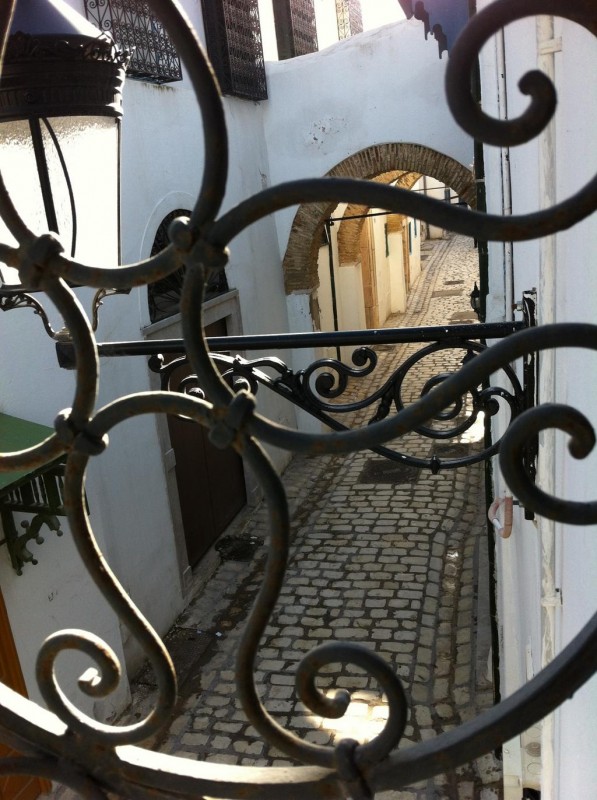
I’m on holiday in Tunisia! Travelling is a wonderful adventure, the food, architecture and landscape are exotic and exciting. Communication can be a challenge; although I’m a Speech and Language Therapist I’m not a natural linguist. My high school French is rusty and my Arabic skills stretch to hello & thank you, here in Tunisia I’m trying a total communication approach!
My French comprehension is better than my expression, so as long as people speak slowly I can understand the general gist. To respond I use the key words in French, muddled grammar, lots of facial expressions, and gestures. I sometimes find myself using Makaton signs. I’ve observed others using these naturalistic gestures too: looking for a table in a crowded cafe I made eye contact with a man who appeared to be done eating, he stood up and signed ‘finished.’
I’m fascinated by what we can communicate without words. Waiting in a mobile phone shop in the middle of the Medina, I had a whole conversation with the woman cleaning the floor, through eye contact & facial expressions – she gave me a look which told me how frustrated she was that someone had dragged a muddy trolley across her floor, I commiserated with another look and we’d connected.
There are interesting cultural variations in communication, such as volume! We’re staying in a fantastic Dar (mansion) in the Medina, with a view over a narrow, cobbled lane. We’ve heard quick-fire conversations in Arabic at a volume that at home would indicate a serious argument, but here seem to be a friendly chat!
Before I left for Tunisia I took a National Autistic Society webinar on PEERS, a social skills curriculum for adolescents with ASD. Elizabeth Laugeson talked about the importance of using concrete rules to teach teenagers how to have successful conversations. She discussed how they teach eye contact: coaching the students that they need to use it, but not to stare. With my limited (French & Arabic) language skills I’m reminded how important and powerful the non-verbal aspects of conversation are.
People in restaurants have been warm and welcoming, without using any words. However, my expressive skills in French are hampered by my reluctance to have a go—I feel self conscious. I don’t want my clients to feel this way. I try to cultivate the same warm, welcoming atmosphere in therapy sessions and demonstrate that it’s okay to make mistakes, so clients know it’s a safe place and don’t feel awkward or self conscious.
Tonight we’re heading out for dinner, and after writing this post I’m committing to practising my French by just having a go. I’m sure I’ll make lots of mistakes– it’s all part of learning!
